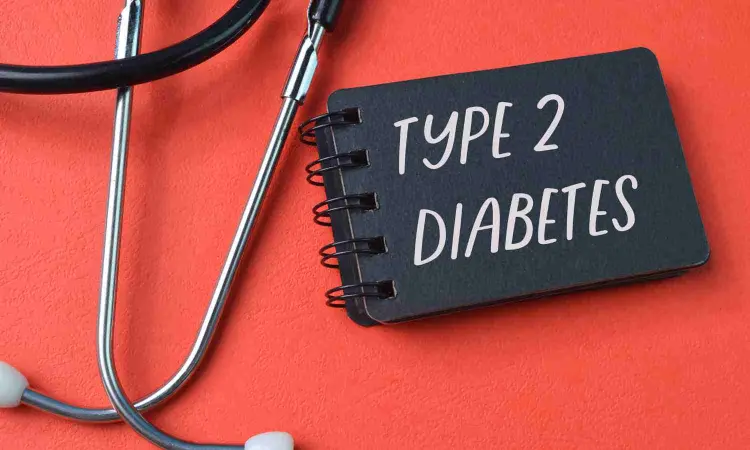- Home
- Medical news & Guidelines
- Anesthesiology
- Cardiology and CTVS
- Critical Care
- Dentistry
- Dermatology
- Diabetes and Endocrinology
- ENT
- Gastroenterology
- Medicine
- Nephrology
- Neurology
- Obstretics-Gynaecology
- Oncology
- Ophthalmology
- Orthopaedics
- Pediatrics-Neonatology
- Psychiatry
- Pulmonology
- Radiology
- Surgery
- Urology
- Laboratory Medicine
- Diet
- Nursing
- Paramedical
- Physiotherapy
- Health news
- Fact Check
- Bone Health Fact Check
- Brain Health Fact Check
- Cancer Related Fact Check
- Child Care Fact Check
- Dental and oral health fact check
- Diabetes and metabolic health fact check
- Diet and Nutrition Fact Check
- Eye and ENT Care Fact Check
- Fitness fact check
- Gut health fact check
- Heart health fact check
- Kidney health fact check
- Medical education fact check
- Men's health fact check
- Respiratory fact check
- Skin and hair care fact check
- Vaccine and Immunization fact check
- Women's health fact check
- AYUSH
- State News
- Andaman and Nicobar Islands
- Andhra Pradesh
- Arunachal Pradesh
- Assam
- Bihar
- Chandigarh
- Chattisgarh
- Dadra and Nagar Haveli
- Daman and Diu
- Delhi
- Goa
- Gujarat
- Haryana
- Himachal Pradesh
- Jammu & Kashmir
- Jharkhand
- Karnataka
- Kerala
- Ladakh
- Lakshadweep
- Madhya Pradesh
- Maharashtra
- Manipur
- Meghalaya
- Mizoram
- Nagaland
- Odisha
- Puducherry
- Punjab
- Rajasthan
- Sikkim
- Tamil Nadu
- Telangana
- Tripura
- Uttar Pradesh
- Uttrakhand
- West Bengal
- Medical Education
- Industry
Type 2 diabetes no longer barrier to becoming living kidney donor, states updated living donor criteria

People who are overall healthy and living with well-controlled Type 2 diabetes can donate a kidney, thanks to a change in national policy.
The Organ Procurement and Transplantation Network updated its living donor criteria . It makes some people with Type 2 diabetes eligible to donate a kidney. This marks a "significant shift" in criteria for living kidney donors, says Naim Issa, M.D ., Mayo Clinic transplant nephrologist.
"This policy change may offer a lifeline to some people with end-stage kidney disease, providing them with a better chance for a successful transplant and improved quality of life," he says.
Nearly 89,000 people in the U.S. are on the waiting list for a potentially lifesaving kidney transplant, according to the United Network for Organ Sharing. The average wait for a kidney from a deceased donor is three to five years. People who receive kidneys from living donors also tend to have better outcomes, says Shennen Mao, M.D., Mayo Clinic transplant surgeon.
"People in need of a kidney transplant typically receive a living donor transplant much faster than a deceased donor transplant, avoiding many years of dialysis and its associated complications," Dr. Mao says. "On average, kidneys from living donors also last longer than those from deceased donors."
What led to policy change?
Historically, people with diabetes have been prohibited from being living kidney donors because diabetes can cause kidney disease. People with Type 1 diabetes remain ineligible to be a living kidney donor. By expanding eligibility criteria, there's potential to save more lives through increased kidney availability while maintaining a commitment to the safety and well-being of donors.
What is the policy?
The national policy allows people with Type 2 diabetes to donate a kidney if there is no evidence of organ damage or an unacceptable lifetime risk of complications. Mayo Clinic Transplant Center adopted its own more stringent policies to minimize potential risks for the donor. In addition to national criteria, Mayo Clinic patients with Type 2 diabetes also must meet the following criteria to be a donor:
- Be age 60 or older.
- Have well-controlled diabetes and not use insulin.
- If over age 65, can be using up to two oral medications for diabetes.
- Not be overweight.
- Have no family history of kidney disease.
- Undergo a rigorous health assessment and individualized risk evaluation.
"Mayo Clinic donors undergo thorough health evaluations and risk assessments, ensuring that only those with minimal risk of complications are approved to donate," says Pooja Budhiraja, M.B.B.S., Mayo Clinic nephrologist. "Criteria such as age limits, weight requirements and the absence of a family history of kidney disease help mitigate the long-term health risks for donors. Our commitment is to safeguard donor health while expanding transplant possibilities."
Mayo Clinic will also conduct ongoing research to monitor and assess the effect of these policy changes on the long-term outcomes of older living kidney donors with Type 2 diabetes.
Dr Kamal Kant Kohli-MBBS, DTCD- a chest specialist with more than 30 years of practice and a flair for writing clinical articles, Dr Kamal Kant Kohli joined Medical Dialogues as a Chief Editor of Medical News. Besides writing articles, as an editor, he proofreads and verifies all the medical content published on Medical Dialogues including those coming from journals, studies,medical conferences,guidelines etc. Email: drkohli@medicaldialogues.in. Contact no. 011-43720751


